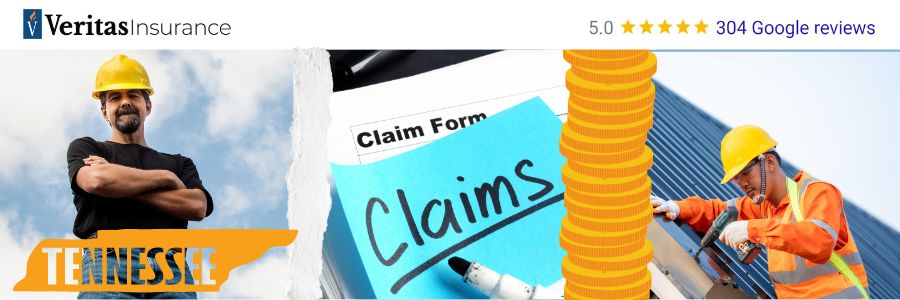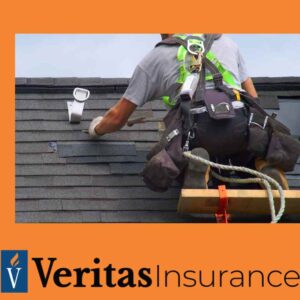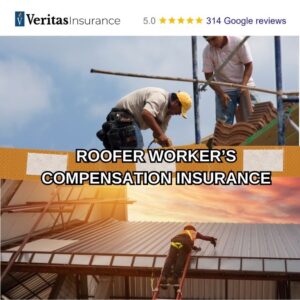Whether it’s workplace accidents or equipment damage, roofing contractors are exposed to a multitude of risks daily, which creates a large need for roofing contractor insurance.
Whether you’re a small roofing business or a large-scale contractor, your insurance should be meticulously tailored to you to serve as a protective shield, not only for your roofing company and your assets but also for the welfare of your employees and clients.
In this article, we will use my 26 years of insuring roofing contractors to dive into the different types of roofer insurance options and help you pick out the best insurance package for your business. We will discuss different types of insurance policies available, what they cover, and which one is right for you. Then I will discuss costs and finally, answer some frequently asked questions.
What Types Of Insurance Should Roofing Contractors Have?
The best roofing contractors should have several types of insurance coverage to protect their business, assets, and employees. Specific types of insurance may vary depending on factors like the size of the business, the scope of work, and local regulations.
Here are 8 essential types of insurance coverage for roofing contractors:
1- General Liability Insurance
General Liability Insurance, often called GL insurance, commercial general liability, or just business insurance, is a foundational type of business insurance that provides coverage for a wide range of liability risks.
This is regarded as the cornerstone coverage and is designed to protect a business from financial losses associated with third-party claims such as:
bodily injury
property damage
personal injury
advertising injury
General liability insurance is crucial for businesses of all sizes and across various industries, as it provides a safety net against unexpected liability claims or lawsuits. It can help protect a business’s assets, reputation, and financial stability in the face of legal challenges.
2- Commercial Property Insurance
Commercial Property Insurance is designed to protect a business’s physical assets, including buildings, equipment, inventory, and other property, from various risks and perils.
Commercially owned and leased equipment such as hand tools, generators, ladders, and air compressors fall under this general category but are also covered under a separate form below. In addition, business records, valuable documents, computers, and equipment can be protected by this as well.
3- Commercial Auto Insurance
Commercial auto insurance, sometimes called Business Auto Insurance, protects vehicles used for business purposes. Generally, roofing businesses do not want just a personal auto insurance policy. This coverage is specifically tailored for businesses that have employees as well as a wide range of vehicles used for business operations.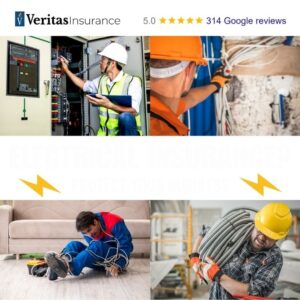
For roofing professionals who regularly transport materials like shingles to work sites, getting this roofing business insurance is critical since it provides coverage for business vehicles. It can also include vehicle customization with racks and toolboxes. It also helps cover the cost of repairing or replacing a vehicle due to a wreck, theft, vandalism, fire, natural disasters, or even your employees dropping a full sheet of OSB on your truck!
4- Workers’ Compensation Insurance for Roofing
Workers’ compensation insurance, workers’ comp, or work comp is a type of roofer’s insurance coverage that provides benefits to employees who are injured or become ill as a result of their job.
This insurance policy is designed to protect both employers and employees by providing financial support and medical coverage in the event of workplace injuries or occupational illnesses.
Worker’s compensation insurance specifically covers work-related medical expenses, lost wages, death, and disability benefits. Employers are generally required by law to provide this coverage to their employees, and employees have the right to file a claim for work-related injuries or illnesses.
You should remember that you can also be held liable for civil penalties for an employee whose injuries are not covered because you do not have workers’ compensation insurance.
5- Commercial Umbrella Insurance
Commercial umbrella insurance, often referred to as excess liability or catastrophic liability insurance, is a policy that provides additional coverage to a small business on top of the primary roofing contractor insurance policies your business already has, such as general liability and auto insurance.
A Commercial umbrella policy is essential for businesses that want to enhance their liability protection and safeguard their assets in the event of a major lawsuit or catastrophic event. It is designed to offer extra protection against high-dollar liability claims and legal fees.
6- Business Owners’ Policy
A business owners’ policy, BOP, or C&T Policy, is a comprehensive insurance package designed for small to medium-sized businesses. It combines several essential insurance coverages like General Liability Insurance, Property Insurance, and other coverage into a single, cost-effective policy.
They offer a convenient and cost-effective way for small and medium-sized businesses to obtain comprehensive insurance protection tailored to their specific risks and needs depending on your roofing business’s size, industry, location, and other factors.
While the BOP can be considered a good starting point for roofing insurance coverages, you’ll need more comprehensive insurance down the line. Most of these policies have limits on sales, payroll, or subcontractor costs.
7- Equipment Breakdown Insurance
Equipment Breakdown Insurance, also known as Boiler and Machinery Insurance, pays for the financial loss incurred when equipment breaks down due to an accident or electronic circuitry impairment.
Example: If your HVAC unit suddenly breaks down, this insurance policy could cover the cost of repairs or replacement of the unit. This policy extends to spoilage for perishable goods due to equipment failure.
8- Contractor’s Tools and Equipment Insurance
Also referred to as equipment floater insurance, Contractor’s Tools and Equipment Insurance is a specialized insurance policy designed to protect contractors and businesses that rely on various tools, equipment, and machinery.
While this coverage is limited to tools and equipment, it is crucial for roofers because it helps safeguard costs for the repair or replacement of damaged, lost, or stolen equipment.
Which one is right for me?
Your insurance plan should be tailored to your roofing business, and we can help you figure out exactly what that should look like.
Your risks can vary based on the size of the business, the types of projects undertaken, and the locations of your job site. That’s why it is crucial to work with an experienced roofing insurance agent like Veritas, who understands roofing insurance and can assess your unique risks and tailor coverage to your business’s needs.
How Much Does Roofing Insurance Cost?
The rate of your roofing insurance plan can vary depending on several factors. These include the size of your roofing business, the types of roofing services you provide, your location, and the number of employees you have. It also includes the amount of subcontracted work, your claims history, and the specific insurance coverages you choose.
What Does Roofing Insurance Cover?
Roofing Insurance Rates And Coverage
How much does roofing insurance cost? In general, you should estimate 7% to 10% of your payroll as your General Liability premium and 9% to 15% for Workers’ Compensation.
Your Employees’ Wellbeing
Roofing is undeniably one of the riskiest professions, with large claim expenses like hospital bills often looming as potential challenges.
From falling from heights and exposure to potential burn or electrocution hazards, contractors understand that their employees can be particularly vulnerable when accidents occur.
Accidents can be unpredictable, and despite all precautions, they can still happen. Therefore, providing them with proper insurance coverage, notably Workers’ Compensation, is a crucial aspect of safeguarding both the workforce and the business.
Workers’ Compensation is not just a good practice; it’s a legal requirement in most states. This insurance ensures that employees have financial support in case of injuries sustained during their roofing work.
Theft or damage to your tools
When stored at a job site, roofing contractors face theft or damage to their tools and equipment.
In some cases, a company may add this for repairs and replacements. This is because common insurance policies like general liability insurance do not provide coverage for these.
Property damage
Property damage refers to physical harm or destruction of real or tangible personal property. Property damage can occur to buildings, structures, vehicles, equipment, belongings, or any physical assets.
Roofing insurance can cover damages to a client’s or else’s property property caused by your roofing work.
Example: Roof debris falls and damages the client’s car. Roofing insurance can cover the cost of any damage caused during your work for your clients and any passers-by.
Vehicle damage
Your chosen insurance policy may cover your vehicles from accidents while on the road.
For example: When you come to an employment site and rear-end the electrician’s truck, resulting in light property damage or bodily injury.
Personal Injury
Personal injury refers to any non-physical injury which can affect a person’s reputation.
This roofer liability insurance coverage is designed to protect roofing contractors and their businesses from the financial consequences of various non-physical injuries or harm caused to third parties. This can include claims related to:
liber or slander
false arrest
malicious prosecution
invasion of privacy
Example: Your drone accidentally takes pictures of the neighbor’s children playing in the back yard and you get sued for invasion of privacy.
Accidents that hurt someone
Liability insurance covers roofing contractors and their businesses from the financial consequences of accidents that harm third parties, such as clients, bystanders, or visitors to the job site.
Example: The homeowner’s child steps on nails you left in the backyard your employees did not pick up.
This will assist in paying medical bills, future lost wages, and other expenses.
Your company’s accident history
Typically, a company with a clean accident history has a lower insurance cost than some other companies. Nevertheless, it does not include your company age, which can be influenced by insurance rates too.
However, it is not a tool for addressing or managing your company’s past accidents or claims. Instead, it focuses on protecting potential future liabilities.
Your insurance rates and eligibility for coverage may be influenced by your company’s claims history, but the insurance itself is designed to protect against future risks.
Frequently Asked Questions (FAQ)
Do you need roofing insurance?
If you are a roofer or own a roofing company, it is a must-have.
Roofing insurance provides essential protection for both your business and your clients. That is why it is highly advisable and often legally required (like workers’ comp) to have roofing insurance.
In most states, the business owner must cover the loss of earnings and medical bills from the alleged injuries if found without.
Does a roofer need commercial auto insurance?
Whether a roofer needs commercial auto insurance depends on several factors, including the nature of their business operations, if they have employees, and how they use vehicles.
However, it is highly advisable to get commercial auto insurance if you are driving a truck and regularly are taking tools and equipment to work sites since this insurance policy covers their theft, damage, and loss.
Does a roofer need professional liability insurance?
Yes, it is highly recommended for a roofer to have professional liability insurance (errors & omissions insurance) especially if you are designing roofs and not building to another’s specifications. This type of insurance provides coverage in case a roofer makes a mistake or error that causes damage to a customer’s property. Roofers need to have this insurance because accidents can happen, even to experienced professionals. By having professional liability insurance, roofers can protect themselves and their customers from potential financial losses and ensure that they can provide quality service with peace of mind.

Author’s Bio
Andrew Darlington, an insurance professional since 1997, established Veritas Insurance in 2009. He is the holder of CBIA, CIC, CRM, and AAI certifications, demonstrating a strong focus on cultivating robust client relationships and ongoing education. On his website, you can find comprehensive industry insights, case studies, and expert recommendations, showcasing his dedication to customized solutions and unwavering integrity.
Let's Get Social!
For more information on Cybersecurity and Cyber Liability check out our other articles here.
As an added bonus, we will also send you with no obligation:
3. Our Cyber Risk Assessment of your company- by giving us just your domain name, we will run multiple different scans including a dark web check, and reach out with your customized report.
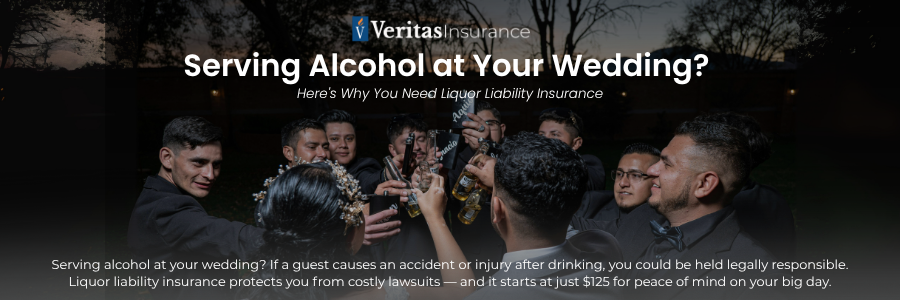
Serving Alcohol at Your Wedding? Here’s Why You Need Liquor Liability Insurance
The Open Bar Shouldn’t Open You Up to Risk Champagne toasts. Craft beer from your favorite local brewery. A signature cocktail with a clever name. If you’re like many

Insuring Your Engagement Ring
Can I Cover My Engagement Ring on My Parents’ Insurance? Congratulations on your engagement! That beautiful ring on your finger isn’t just a symbol of your love—it’s also a

